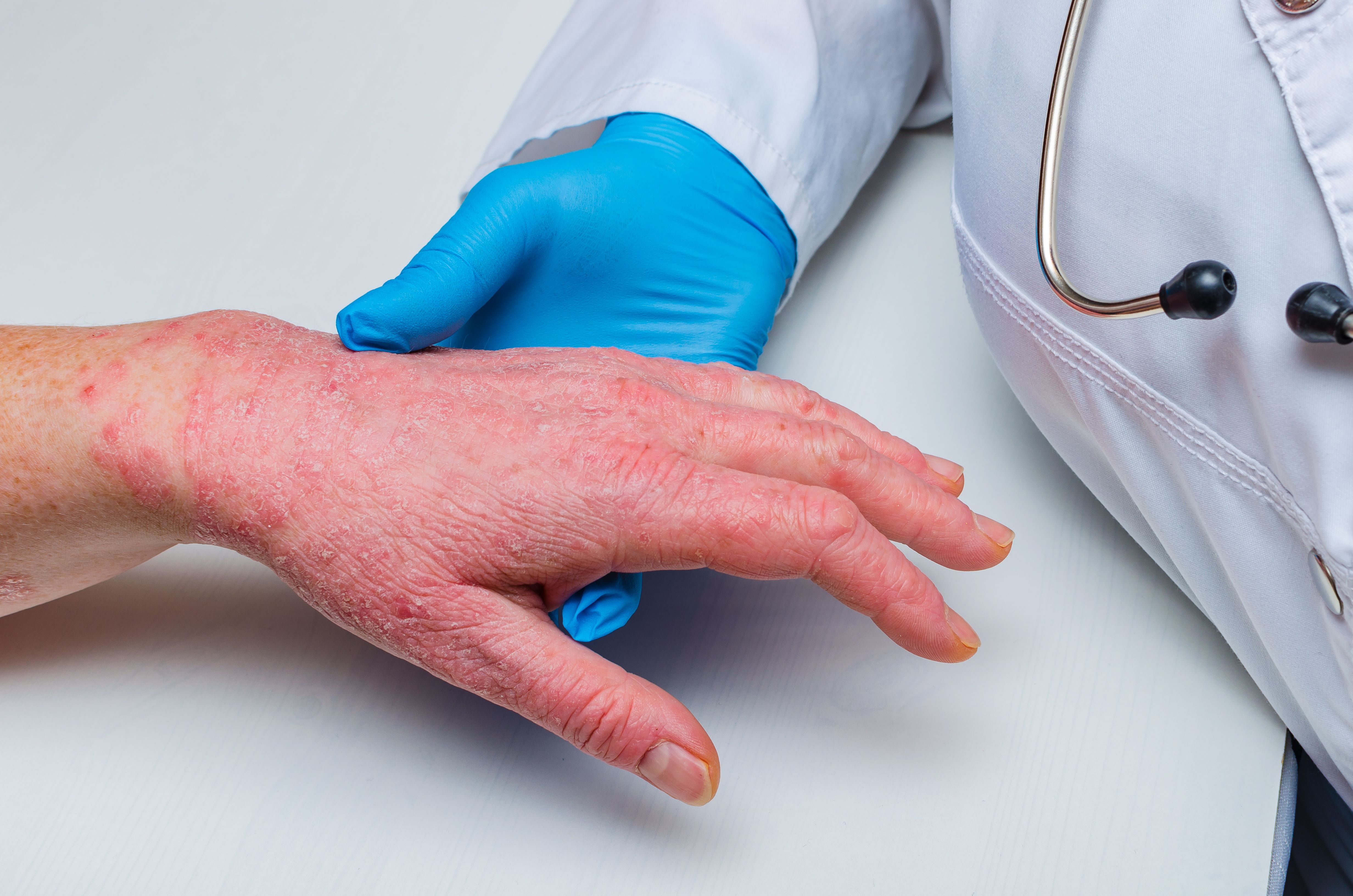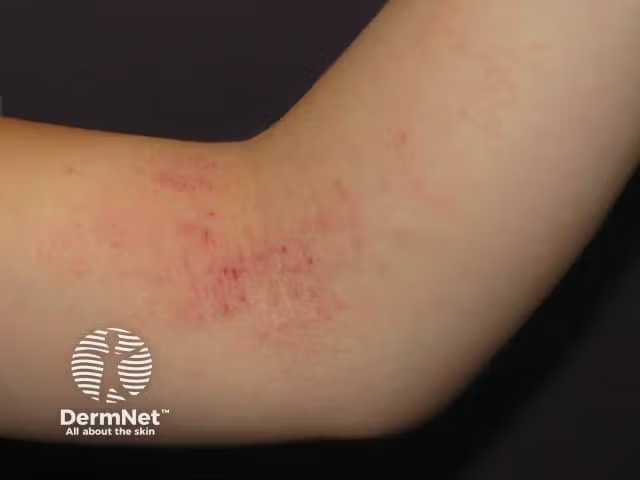- Case-Based Roundtable
- General Dermatology
- Eczema
- Chronic Hand Eczema
- Alopecia
- Aesthetics
- Vitiligo
- COVID-19
- Actinic Keratosis
- Precision Medicine and Biologics
- Rare Disease
- Wound Care
- Rosacea
- Psoriasis
- Psoriatic Arthritis
- Atopic Dermatitis
- Melasma
- NP and PA
- Skin Cancer
- Hidradenitis Suppurativa
- Drug Watch
- Pigmentary Disorders
- Acne
- Pediatric Dermatology
- Practice Management
- Prurigo Nodularis
- Buy-and-Bill
Article
Lebrikizumab Demonstrates Promising Results in Atopic Dermatitis
Author(s):
Researchers say the treatment is both safe and effective in moderate-to-severe cases.
Lebrikizumab proved to be safe and efficacious in treating adults and adolescents with moderate-to-severe atopic dermatitis, according to results from a recent study.1
Iri-s/Adobe Stock

Lebrikizumab, a monoclonal antibody and biologic that targets interleukin (IL)-13, was granted a US Food and Drug Administration (FDA) Fast Track designation in December 2019. In November 2022, Eli Lilly and Company announced it had submitted a Biologics License Application (BLA) to the FDA for lebrikizumab for the treatment of atopic dermatitis.
“It’s thought to be very important in the underlying pathogenesis," said Jonathan Silverberg, MD, PhD, MPH, associate professor of dermatology at The George Washington University School of Medicine and Health Sciences, and lead author of the study.
Researchers conducted 2 identical phase 3, randomized, double-blind, and placebo-controlled trials to determine the safety and efficacy of lebrikizumab in treating patients with atopic dermatitis.
Study participants included adolescents and adults with moderate-to-severe atopic dermatitis. Adolescent patients were eligible to participate if they met a weight requirement of 88.2 pounds or greater.
Upon randomization, participants were assigned either the lebrikizumab or placebo treatment at a 2 to 1 ratio. Participants subcutaneously received 250 mg of one of the treatments on a basis of once per 2 weeks.
Researchers divided the study period into a 16-week induction period and a 36-week maintenance period. Using the Investigator’s Global Assessment (IGA), the Eczema Area and Severity Index (EASI), and itch and sleep analysis, they accumulated data from the induction period.
The study’s primary outcome was participant scores of 0 to 1 on the IGA scale, including an overall score reduction of 2 points from baseline analysis. Researchers also sought a secondary outcome of 75% improvement in EASI score (EASI-75) from baseline.
At the conclusion of the 16 weeks, 43.1% of trial 1 participants using the lebrikizumab treatment (n=283) met the primary endpoint, and 58.8% met the EASI-75 endpoint. In participants using the placebo treatment (n=141), 12.7% of participants met the primary endpoint, and 16.2% met the EASI-75 endpoint.
Additionally, in trial 2, 33.2% of participants using lebrikizumab (n=281) met the primary endpoint, and 52.1% met EASI-75. Participants using the placebo (n=146) met the primary endpoint 10.8% of the time, and reached EASI-75 in 18.1% instances.
“These are two really well-designed, large, randomized control trials. It's about as good as you're going to get in study quality,” Silverberg said. “These results are extremely promising.”
Treatment-emergent adverse effects were mild to moderate in severity, leading to 0 cases of discontinuation.
“We are optimistic that these data will inform FDA approval for lebrikizumab in the United States, hopefully before the end of this calendar year. So this is hopefully coming to us pretty soon and will become a very important new addition to our toolbox in managing moderate to severe atopic dermatitis,” Silverberg said.
Reference
- Silverberg JI, Guttman-Yassky E, Thaçi D, et al. Two phase 3 trials of Lebrikizumab for moderate-to-severe atopic dermatitis. New England Journal of Medicine. 2023;388(12):1080-1091. doi:10.1056/nejmoa2206714






